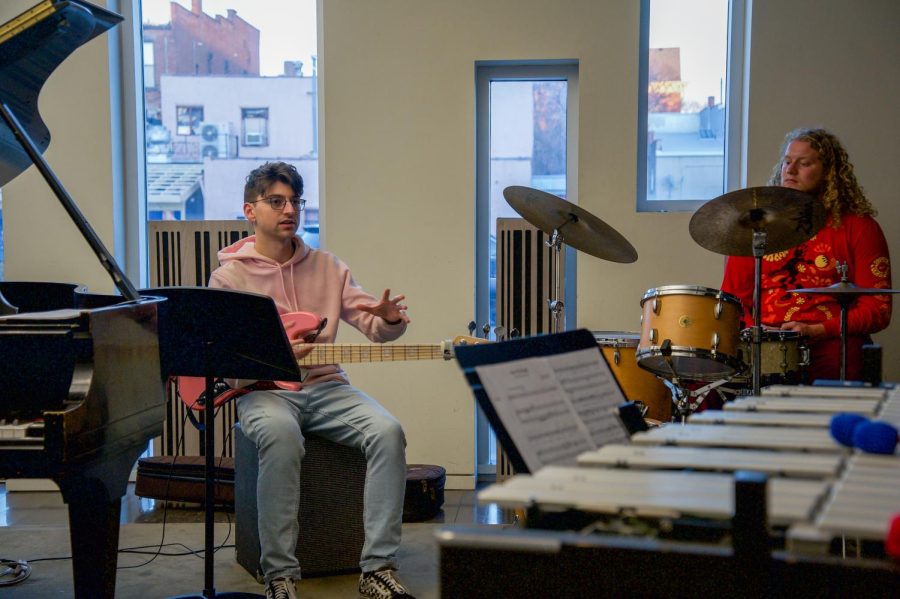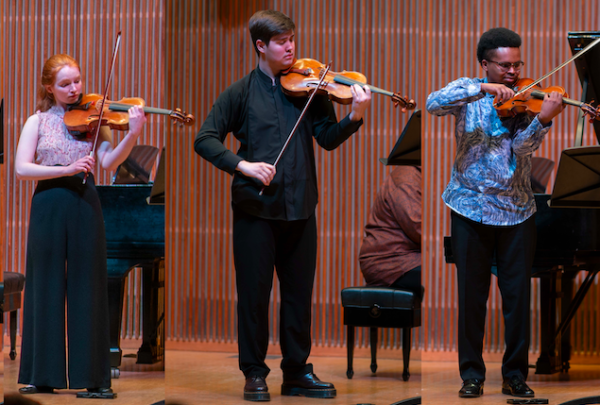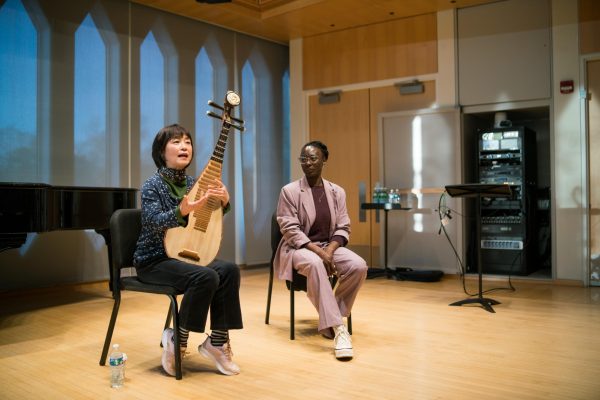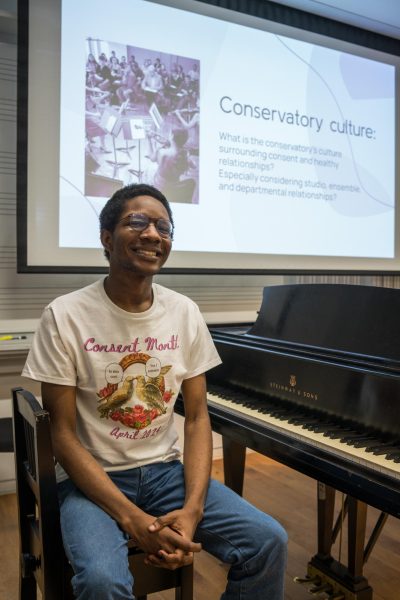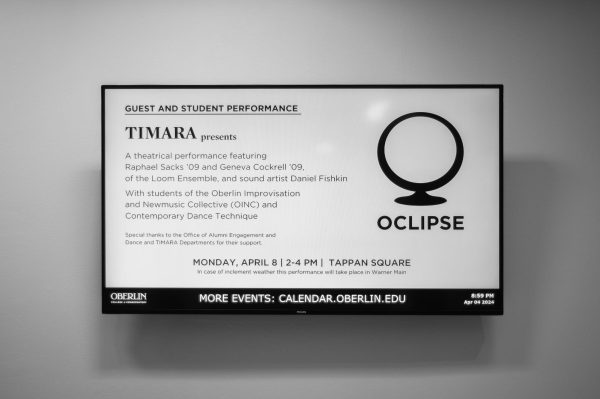Rehearsal Culture in Jazz Department Presents Challenges
Jazz students rehearse in a Kohl Building ensemble room.
Fresh out of two back-to-back rehearsals for a friend’s upcoming junior recital, Conservatory second-year double-degree Jazz Studies majors Martin Kent and Harrison Fink load their instruments into a car and drive to Peters Hall. On the way over, they spitball different songs to play for the gig and agree on a rough setlist after some debate. After an hour of setup and sound checking, they play a few hours of background music for a Purim celebration. For many Jazz students, this represents a typical Monday night.
One has to ask: With an abundance of talent across the Conservatory, why do these extra gigs consistently feature students from the Jazz department? Well, for one, Jazz students share a collective knowledge of tunes, unlike any other musicians in the Conservatory. In the spring of their first and second years at Oberlin, Jazz students have a final exam of sorts called a jury. These juries are the culmination of learning the same 50 jazz standards during their first year and another 43 their second year. The students must have internalized these songs to the point where, when a faculty member calls any one of these standards, students can play the melody and improvise over the chord changes — with or without a supporting band.
Kent has found this shared musical catalog to be essential for playing gigs.
“We all know the repertoire,” Kent said. “Really, at any given moment, we can not only play a tune but alter it and make it our own.”
This shared repertoire, combined with a training in improvisation, makes jazz musicians uniquely equipped to pick up gigs, particularly those with little to no rehearsal time needed. In my experience as a Jazz Studies major, a gig rehearsal usually goes as follows: I receive an email from the Conservatory gig-referral service stating that a local store, restaurant, or College event is seeking live music. After sifting through my contacts for a bassist — they are few and hard to come by this semester — I assemble my group and a “when2meet” is sent out. Sometimes, finding a time when everyone is free to rehearse takes longer than the rehearsal itself. We eventually run through mutually agreed-upon tunes in a Kohl Building ensemble room and we’re ready to perform in an hour or less.
Junior and senior recitals, on the other hand, can require long and frequent rehearsals; students may begin rehearsing well over a month prior to a recital. In this instance, the focus shifts from getting paid or having fun to further developing one’s artistry and musical voice. For first-year double-degree Jazz Drums, Jazz Voice, and Creative Writing major Ruby Laks, a recital is a hard gig to turn down.
“It’s an honor, in a sense, to be asked by a junior or senior to play on their recital,” Laks said. “If they think I can help to achieve their artistic vision, I don’t want to say no.”
Laks has now committed herself to playing on seven of her friends’ recitals, each with their own slew of original compositions and jazz standards, many of which have complex and lengthy arrangements. With one individual song alone in a recital needing an hour-long, weekly rehearsal, Laks easily spends three or four hours a day, every day of the week, rehearsing — not including her registered, for-credit ensemble meetings. That doesn’t even account for the time Laks must spend practicing all these tunes independently. As one can imagine, this rehearsal-heavy lifestyle comes at a cost.
“You’re cutting corners somewhere,” Laks said. “You’re making time by staying up later, which then affects your physical and mental health. … Or you’re spending less time on your schoolwork.”
Another aspect of this rehearsal culture is compensation, or lack thereof, for all the hours of preparation. You’ll never get paid to play on a recital, despite it being the most time-consuming and musically-demanding gig. Ironically, the more casual and impromptu gigs usually result in a paycheck. It seems, though, payment may be seen as more of an added bonus than a requirement for those in the Jazz department.
“As a student, payment isn’t the main incentive for me to take a gig — I’m here to connect with other musicians as much as possible,” third-year College Musical Studies major and jazz bassist Nathaniel Coben said. “Of course, then you’re setting lower standards for yourself as a professional, which we’re all trying to be.”
Overall, Jazz students work tirelessly to create music and connect with the musicians around them. This is a gift for the Oberlin community, and regardless of how much they’re getting paid or the incomprehensible amount of hours spent in the ensemble rooms, you’ll never witness a jazz gig with expressionless faces or low energy, which really speaks to the essence of jazz music as a whole.


